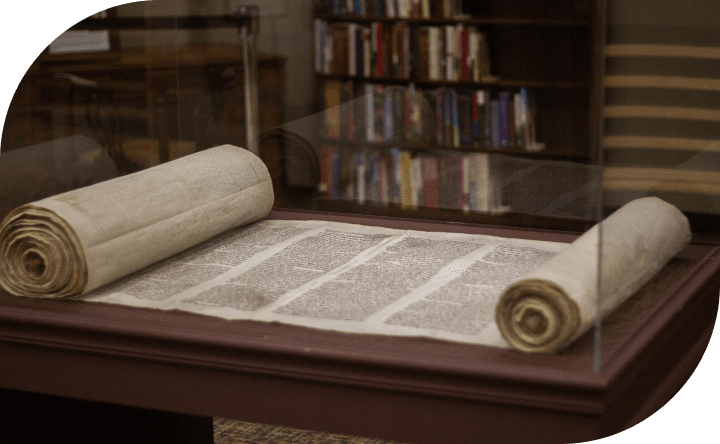פרשת תצוה – זכור: לא לדחות למחר
07 March 2025
בשבת זו אנו קוראים את פרשת זכור, משום שיש לנו מצווה מהתורה לזכור את אשר עשה לנו עמלק כאשר נלחם בנו מיד לאחר יציאת מצרים.
אך יש להבין: מדוע אנו מצווים לזכור מלחמה כה ישנה? במה היא שונה משאר המלחמות שעברו על עם ישראל לאורך הדורות? ועוד – הרי עמלק לא הצליח במלחמה זו, כפי שמובא בתורה: "והיה כאשר ירים משה ידו, וגבר ישראל", וכך ניצחו ישראל. אם כן, מדוע עלינו לזכור דווקא את המלחמה הזו?
המדרש מסביר שעם ישראל, לאחר שיצא ממצרים, היה כאמבטיה רותחת – כל העמים פחדו מהם. אך כאשר עמלק קפץ לאמבטיה, הוא "קירר" את הפחד, וכך שאר האומות כבר לא חששו להילחם בנו, במיוחד במלחמות הכניסה לארץ. אך יש כאן רובד עמוק יותר – עמלק לא רק קירר את הפחד של הגויים, אלא גם את ההתלהבות הרוחנית של עם ישראל. לאחר מתן תורה, בני ישראל היו במדרגה רוחנית גבוהה – הם שמעו את קולו של הקב"ה בעצמו: "אָנֹכִי ה' אֱלֹקֶיךָ". אך אז הגיע עמלק, והראה לעם ישראל שהם אינם בלתי-מנוצחים, שהוא עדיין יכול להילחם בהם, וכך פגע באמונתם ובעוצמתם הרוחנית.
חיזוק נוסף. כתוב בפסוק: "לך הלחם בעמלק מחר" – ויש בזה רמז לכל דור ודור. עמלק שבתוכנו הוא הנטייה לדחות למחר. פעמים רבות, כאשר אנו רוצים לעשות דבר טוב – להתחזק, לשפר משהו בעצמנו – אנו אומרים "מחר נתחיל". אך האמת היא שאם דוחים שוב ושוב, הדבר לעולם לא יקרה.
המלחמה בעמלק היא המלחמה בדחיינות הרוחנית. עלינו להתחיל עכשיו, היום – ולא לחכות למחר.
שנזכה תמיד להתחזק ולפעול מיד, ולא לתת לעמלק לקרר אותנו!
Parashat Tetzaveh – Zachor: Do Not Postpone Until Tomorrow
This Shabbat, we read Parashat Zachor, as we have a Torah commandment to remember what Amalek did to us when he waged war against Bnei Yisrael after the Exodus from Egypt.
However, we must understand: Why are we commanded to remember such an ancient battle? What makes this war different from all the other battles that Am Yisrael has endured throughout history? Moreover, Amalek did not even succeed in this war, as the Torah states: "וְהָיָה כַּאֲשֶׁר יָרִים מֹשֶׁה יָדוֹ וְגָבַר יִשְׂרָאֵל" (שמות י"ז:י"א), and ultimately, they were defeated. If so, why is it so crucial to remember this battle?
The Midrash explains that after Bnei Yisrael left Egypt, they were like a boiling bath—all the nations feared them. But once Amalek "jumped into the boiling water," the fear was diminished, and the nations no longer hesitated to fight Am Yisrael, especially during the battles at the entrance to Eretz Yisrael.
However, there is a deeper dimension: Amalek did not only cool the fear of the nations, but also the spiritual fervor of Bnei Yisrael. After receiving the Torah, Am Yisrael reached an exalted spiritual level—they heard the voice of Hashem Himself declaring: "אָנֹכִי ה' אֱלֹקֶיךָ" (שמות כ':ב'). But then came Amalek, showing them that they were not invincible, that it was still possible to fight them, thus weakening their faith and their spiritual enthusiasm.
A further insight is found in the words of the Torah: "לֵךְ הִלָּחֵם בַּעֲמָלֵק מָחָר" (שמות י"ז:ט'). Chazal explain that this hints at every generation’s battle against Amalek within—the tendency to postpone things for tomorrow. Often, when we wish to grow, improve, or take on a mitzvah, we say "Tomorrow, I will start". However, if we keep delaying, it may never happen.
The war against Amalek is the battle against spiritual procrastination. We must act now, today—not wait for tomorrow.
May we always have the strength to rise immediately and not let Amalek cool our enthusiasm!




